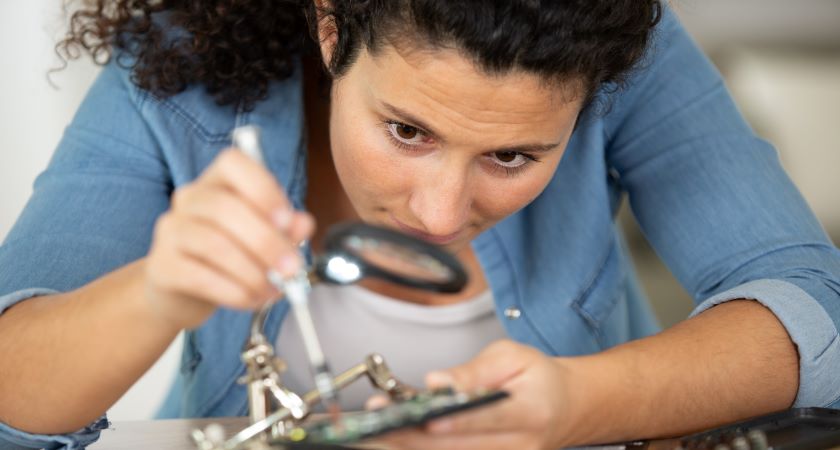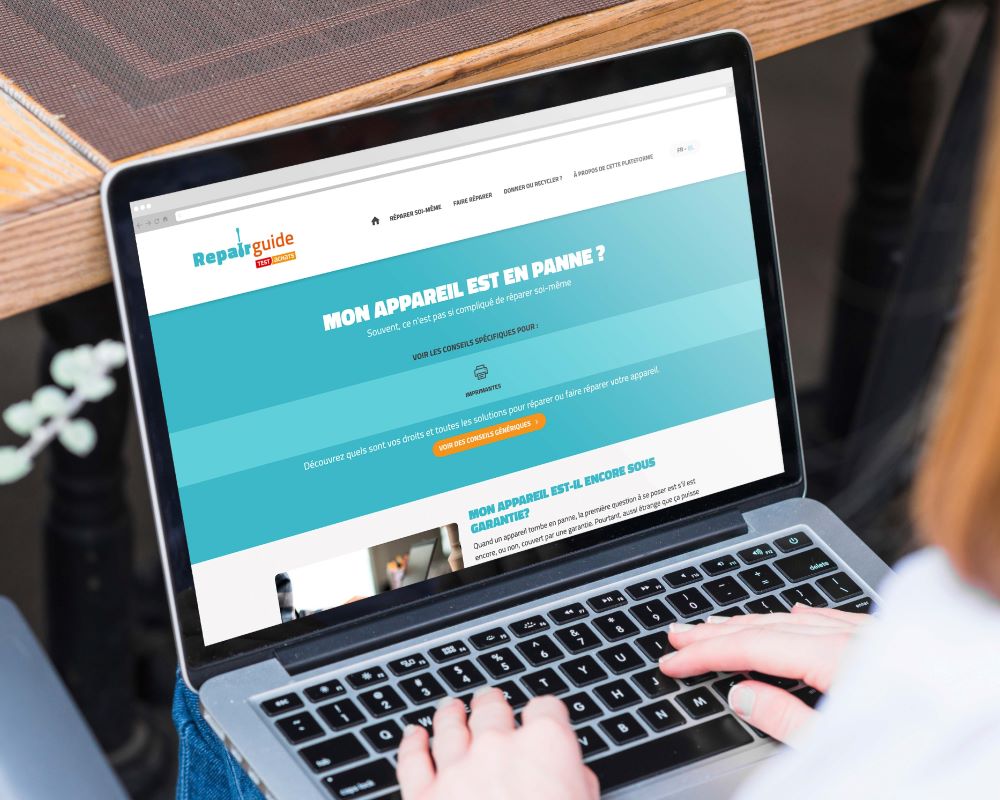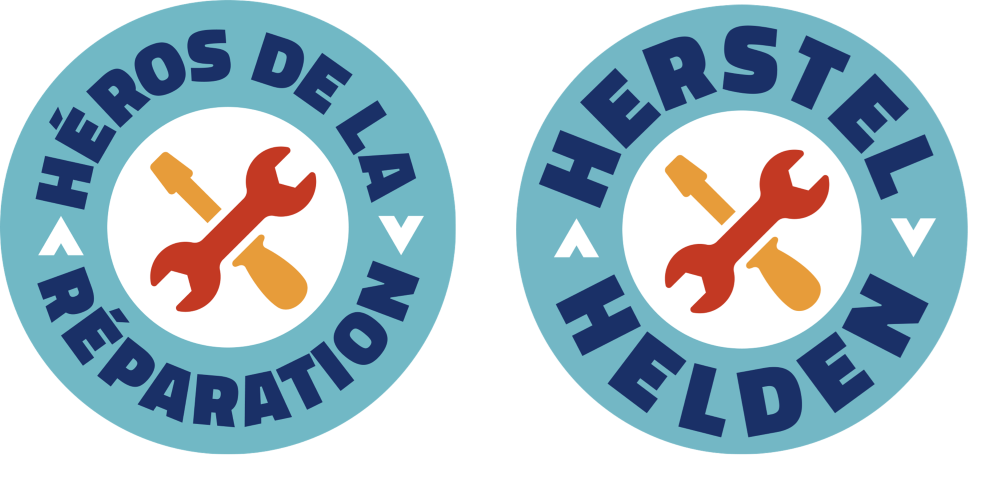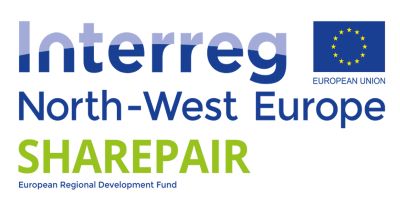This website uses cookies so that we can provide you with the best user experience possible. Cookie information is stored in your browser and performs functions such as recognising you when you return to our website and helping our team to understand which sections of the website you find most interesting and useful.
SHAREPAIR: Developing a consumer ‘repair reflex’ is crucial for the circular economy

Whether we like it or not, as consumers we are part of a deeply wasteful product system. Most electronic devices and appliances are designed to fail within a relatively short period and simply be replaced.
This creates a familiar cycle of waste and a continuing demand for new products – both of which have heavy environmental impacts. Relying on recycling to deal with the unwanted waste is not sufficient and comes with its own carbon cost. And bringing new products to market uses energy and natural resources and takes up space in the economy that could be used for sustainable, regenerative production.
Developing the repair reflex
Instead, new strategies that will change the current ‘make, take, waste’ model into a vibrant new circular market where products can live longer are urgently needed. For consumers to actually exercise their ‘right to repair’, easy and readily available repair options must expand. This will help develop a ‘repair reflex’ where getting a fix or replacement part for a broken product becomes second nature.
This blog looks at the SHAREPAIR scheme which is piloting a consistent and reliable repair infrastructure so citizens have a serious alternative to simply scrapping products.
SHAREPAIR: cutting electronic waste
The SHAREPAIR consortium consists of European cities and partners aiming to develop a pilot support infrastructure for product repair. SHAREPAIR taps into the growing community repair movement which is currently made up of thousands of volunteers in the local community.
Its aim is to reduce the increasing amount of waste from electrical and electronic equipment (WEEE), currently one of the fastest-growing waste streams in the EU, growing at 3-5% a year. It has set itself a target of decreasing WEEE by 110ton for the four pilot cities.
SHAREPAIR: building digital repair infrastructure
SHAREPAIR wants to accelerate the scaling-up of citizen-centered repair with digital tools that will support and grow repair facilities in repair cafés and other community centers. These vibrant citizen repair centers are a fantastic local resource but they are dispersed and are not always able to fix products effectively because information or spare parts are missing. They are also small scale, and not widely known outside of localised circles.
The project will tackle both sides of this, by increasing access to information on repair solutions and spare parts, and by guiding more citizens towards repair as an option.
The ’share’ in SHAREPAIR will be crucial to its success, as it wants to link up the citizen-community based activity into something bigger that can grow. The pool of expertise and data on products and repairs will be developed into openly available guidance, and the model of communicating to consumers can also be replicated with some key messages, branding and material.
Test-Aankoop/Test Achats steps up repair role
Test-Aankoop/Test Achats’ role in the project is to reach out, inform and support citizens in finding solutions for their issue with a broken product. At the moment, consumers find it expensive and difficult to find a place to get repairs done even when they are keen to do so.
Test-Aankoop/Test Achats wants to guide consumers through all the stages: from informing them of their legal rights to repair, to supporting them in finding out if the product can be repaired and in the different options of repairing.
Repairguide Hub
A central hub has been created in the Test-Aankoop/Test Achats’ websites called ‘Repairguide’, in Dutch and French, which gives consumers decision tools and interactive maps to understand product repair.

- Helping consumers do repairs: Consumers can find guidance showing some simple ‘do it yourself’ fixes. The guides are targeted at non-expert repairers. The first guides published are on printers, laptops and mobile phones.
- Finding repairs and parts: geo-mapping tools are available to locate professional repair services and repair cafés and finding spare-parts.
The Repairguide Hub has been built on a template which allows for it to be easily reproduced in other EC countries – and the Test Aankoop Business Technology team has already created a manual on how to build the RepairGuide Hub for sister organisations in Italy, Spain and Portugal.
Repair Heroes campaign
To generate consumer engagement, Test-Aankoop/Test Achats has worked with the repair networks and partner cities on a social media campaign. The Repair Heroes campaign was launched in February 2022 to stimulate the repair reflex promoting the idea that every repairer is a Repair Hero.

It will encourage the use of do-it-yourself guidance, repair Cafés or professional repairers using humorous, engaging videos on fixing toasters, laptops and washing machines.
To build visibility and recognition on the street, repair centers will carry the same Repair Hero branding. Test-Aankoop/Test Achats will support the upscaling of the project via smart cities. New cities entering the European Repair Network will all be able to use material that has been developed for this campaign. More information about the campaign can be found here in French and Dutch.
Other activities in SHAREPAIR include:
- Building a strong repair dataset: SHAREPAIR supports the Open Repair Alliance to collate more and better data and support mutual learning with best practices and building wikis. With the help of design professionals, a database of 3D-printing designs (open-source) for printing replacement parts is also being established.
- Standardising repair data: the Open Repair Data Standard is a key part of the Open Repair Alliance’s effort to collect, share and analyse data on community repair of small electricals and electronics. Defining a standard way of structuring data means data community repair events happening all around the world can be combined. This gives insights into global and local trends and patterns in repair activity to help build advocacy for the right to repair and how to implement it across the work.
- Looking to the future: Research partners and companies support the development of these open source tools and open data space. The pilot will develop a business plan for a European Open Repair Data Platform to upscale it further.
Information about the whole project can be found here.
SHAREPAIR is one of a series of projects that Euroconsumers members are involved in as they test out practical solutions that will accelerate the shift to a more circular economy that is Approved by Tomorrow. Euroconsumers is also advocating for a meaningful European Right to Repair to embed rights that will help end the damaging cycle of waste and premature obsolescence.



